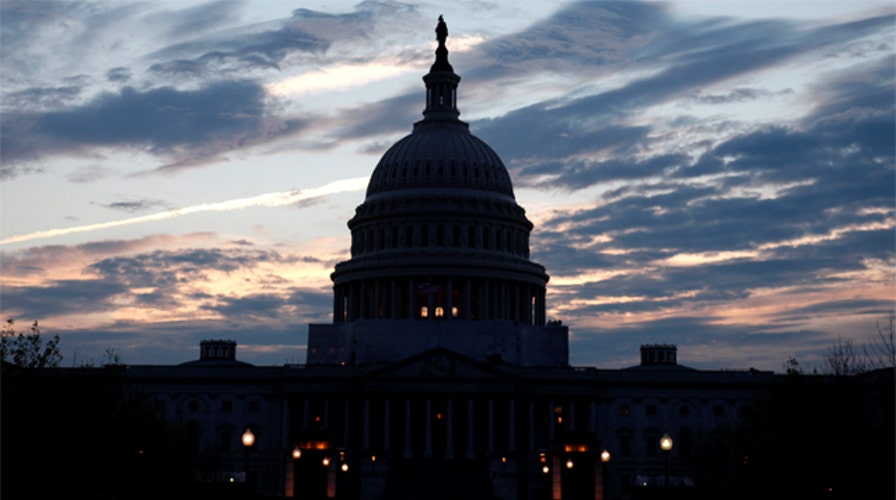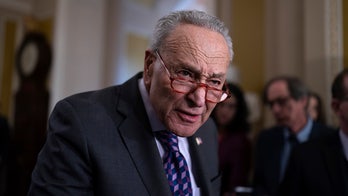Could the partial shutdown and debt ceiling collide?
Mike Emanuel reports on the possibility of a 'super standoff'
With prospects for a quick end to the 5-day-old partial government shutdown diminishing, lawmakers are turning their attention to the debate over a mid-October deadline for avoiding a threatened first-ever default.
At a press conference on Friday, House Speaker John Boehner signaled a possible shift in focus away from the fight over ObamaCare and the budget, arguing that Congress must fight for spending cuts as part of any deal to raise the debt ceiling.
"This isn't some damn game," Boehner said, as the White House and Democrats held to their position of agreeing to negotiate only after the government is reopened and the $16.7 trillion debt limit raised.
Senate Majority Leader Harry Reid, D-Nev., also said the two issues were linked. "We not only have a shutdown, but we have the full faith and credit of our nation before us in a week or ten days," he said.
According to warnings by the administration and Wall Street, failure to raise the debt limit, by contrast, had the potential to destablize financial markets and inflict harm on the economy quickly.
Treasury Secretary Jacob Lew has said that unless Congress acts, the government will be unable to pay all its debts and will run the risk of default. He has urged lawmakers to act by Oct. 17.
Debt limit bills typically pass first in the House, then move to the Senate. So far, neither Boehner nor the rest of the leadership has said when they expect to draft and have a vote on one. More than a week ago, they circulated a list of items that might be included— calls for higher Medicare costs for better-off seniors, a wholesale easing of environmental regulations and approval of the Keystone Pipeline among them.
In a letter sent to Lew Friday, Sen. Orrin Hatch, R-Utah, accused the treasury secretary of creating "needless panic" with financial institutions and the public over raising the debt ceiling and warned the White House against making statements about the dangers of default.
“This is irresponsible and threatens to create needless panic. Comments such as those recently made by administration officials invite greater market uncertainty and volatility, which threatens the livelihoods and savings of millions of Americans,” Hatch wrote.
At the White House, President Obama has said repeatedly he will not negotiate over the terms of debt limit legislation but is willing to discuss a range of issues once the government is reopened and the Treasury able to borrow freely again.
House Republicans are continuing with their strategy to pass a series of small bills, effectively daring Democrats to oppose them while simultaneously pressuring them to come to the negotiating table over the broader budget.
The House on Friday voted to fund the Federal Emergency Management Agency. The chamber voted later in the day to approve a bill to fund nutrition programs for women, infants and children.
The House is scheduled Saturday to vote on legislation backed by the White House and congressional Democrats that would make sure the 800,000 sidelined government employees get their pay when the shutdown ends.
The Senate is expected to clear that bill later, even as early as Saturday, for Obama's signature.
Meanwhile, Secretary of State John Kerry on Saturday urged Congress to think long and hard about the message U.S. sends the world when "we can't get our own act together."
Kerry, in Bali for an economic summit, called Saturday for Congress to reach an agreement to end the partial shutdown of the federal government, now entering its fifth day.
President Obama had planned to attend the summit but canceled his travel plans to remain in Washington and deal with the shutdown. Kerry is now leading the U.S. delegation in the talks.
Kerry said that America's "friends and foes" shouldn't mistake the government shutdown as anything other than a "moment of politics."
The Associated Press contributed to this report.





